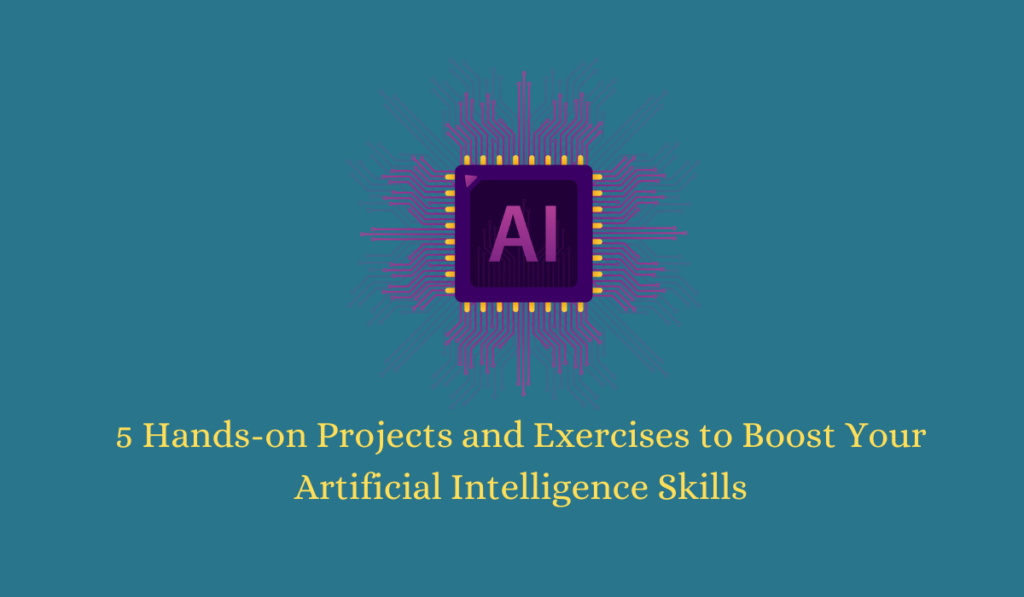Artificial intelligence (AI) is a rapidly growing field that is transforming industries and improving the lives of people around the world. If you’re interested in building your AI skills, the best way to do so is through hands-on projects and exercises.Boost Your Artificial Intelligence Skills
5 Hands-on Projects and Exercises to Boost Your Artificial Intelligence Skills
One of the most effective ways to learn AI is by working on projects that apply the concepts you have learned to real-world problems. This allows you to not only test your understanding of the material, but also to see the impact of your work and receive feedback on your progress. There are many resources available online that provide datasets and challenges for you to work on. Some popular ones include Kaggle, DataCamp, and Zillow’s Zestimate competition.
Another great way to build your AI skills is by participating in hackathons or workshops. These events bring together experts in the field and provide a collaborative environment for you to work on projects with other like-minded individuals. Not only will you have the opportunity to learn from experienced professionals, but you’ll also be able to network and potentially find mentorship or job opportunities.
In addition to working on projects, there are also a number of exercises you can do to hone your AI skills. One such exercise is to recreate a well-known AI model or algorithm from scratch. This can be a time-consuming task, but it is an excellent way to truly understand how the model works and to identify any potential weaknesses or limitations.
Another way to practice your AI skills is by participating in online coding challenges or coding bootcamps. These programs provide structured learning environments and often include guided projects and exercises to help you build your skills. Some popular options include Codecademy, Udacity, and Coursera.
Here are a few examples of projects and exercises you can do to build your AI skills:
Work on a machine learning project using a public dataset:
You can find a wide range of datasets on sites like Kaggle, UCI Machine Learning Repository, and Zillow’s Zestimate competition. Once you’ve selected a dataset, you can apply machine learning algorithms and techniques to analyze the data and build a model to solve a specific problem. For example, you could use a dataset of housing prices to build a model that predicts the sale price of a home based on various features.
Recreate a well-known AI model or algorithm:
Choose a model or algorithm that you are interested in and try to recreate it from scratch. This will require you to thoroughly understand how the model works and to implement it in code. This exercise can be time-consuming, but it is an excellent way to gain a deep understanding of the model and to identify any potential weaknesses or limitations.
Participate in a hackathon or workshop:
These events provide a collaborative environment for you to work on AI projects with other like-minded individuals. You’ll have the opportunity to learn from experienced professionals and to network with potential mentors or employers.
Complete online coding challenges:
There are many online platforms that offer coding challenges and bootcamps to help you build your AI skills. These programs often include structured learning materials and guided projects to help you practice your skills and apply what you’ve learned. Some popular options include Codecademy, Udacity, and Coursera.
Build a personal project:
Come up with an idea for an AI-powered application or tool that you would like to build and work on it on your own. This can be a great way to apply your skills to a problem that you are personally interested in and to see the impact of your work.

Overall, the key to building your AI skills is to get hands-on experience through projects and exercises. Whether you’re working on a dataset from an online resource, participating in a hackathon, or completing a coding challenge, the more you apply what you’ve learned, the more your skills will grow.
